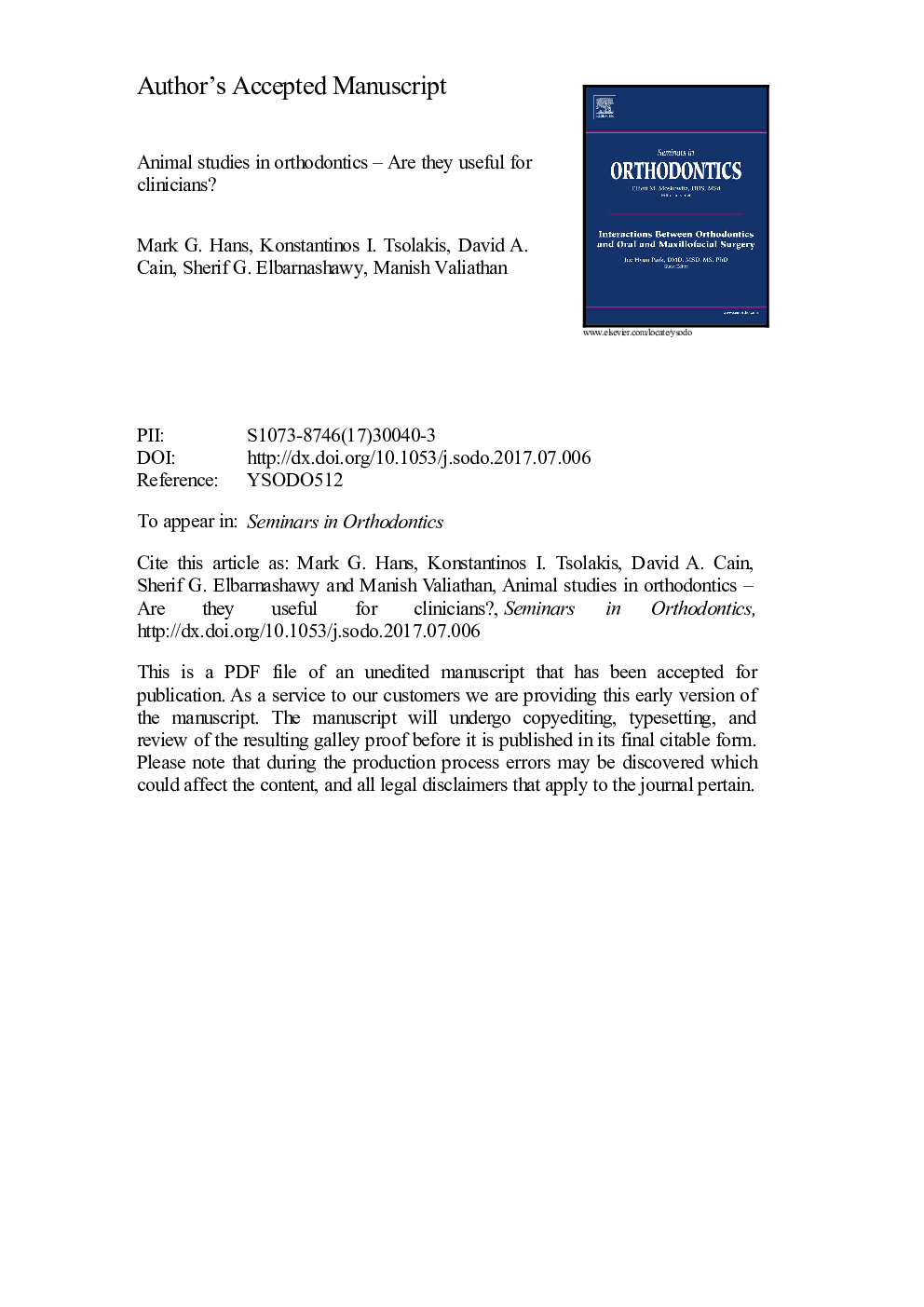| Article ID | Journal | Published Year | Pages | File Type |
|---|---|---|---|---|
| 8708878 | Seminars in Orthodontics | 2017 | 19 Pages |
Abstract
The recent uptick in do it yourself orthodontics (DIY), the outrageous claims by orthodontic company advertisements in our journals, and the explosion of misinformation about orthodontic services available via the Internet are three reasons to care about science. Science is based on evidence. Findings from carefully conducted experiments where the hypothesis, that is, “This is what I think happens,” is tested to see if in fact you are correct in your thinking. Now, we have all heard that orthodontics is art and science. What is not always clear is that science comes in two flavors. The first type, reductionist science, seeks to reduce the question to a simple hypothesis that has a yes or no answer, that is, a testable hypothesis. This is the type of science that we are most familiar because it is the type of science that is generally supported by the big funding agencies like the National Institute of Health. And it is the type of science we conducted as part of our training when we all were orthodontic residents. And make no mistake about it we need reductionist science. However, there is another type of scientific inquiry that is equally important. This is scientific synthesis. Here, the question we are asking has no simple answer. It is a complex question and requires a complex answer. A few examples of these questions outside of orthodontics are: Is global warming real? Did humans evolve from less complex species? These types of questions are answered not with one experiment; rather, they are answered by a preponderance of information suggesting the most likely answer based on what we know to be true. Most orthodontic treatment questions require scientific synthesis of the information available from a variety of sources including animal experimentation. This article describes some applications of such findings to clinical care.
Related Topics
Health Sciences
Medicine and Dentistry
Dentistry, Oral Surgery and Medicine
Authors
Mark G. Hans, Konstantinos I. Tsolakis, David A. Cain, Sherif G. Elbarnashawy, Manish Valiathan,
